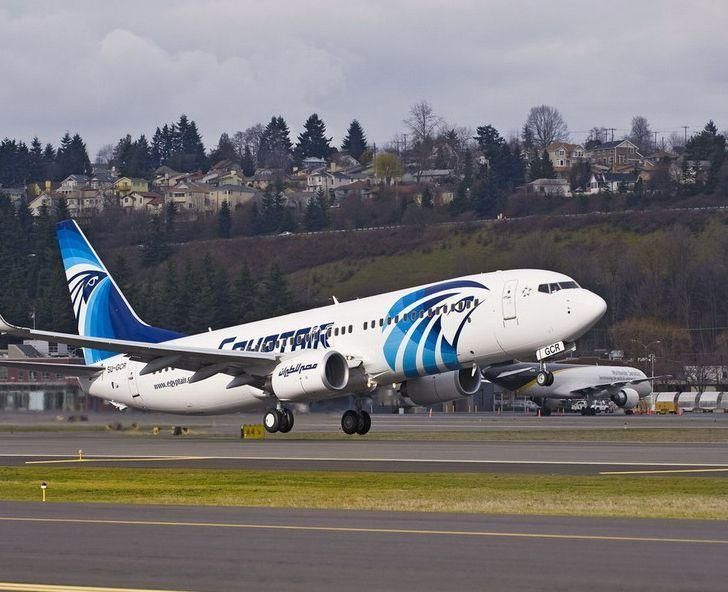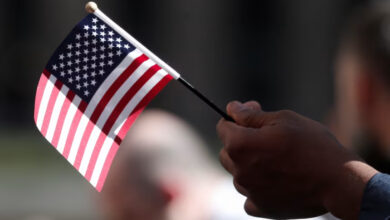
It’s enough to give anyone already on edge about how to handle possible flight delays and cancellations yet another reason to pop an antacid or two: the prospect of delayed, lost, stolen or damaged baggage.
The concern is valid, especially during peak winter holiday travel and situations such as the global IT outage in the summer of 2024. Handing over checked suitcases can almost feel like a leap of faith these days.
Yet you’re not totally powerless. There are things you can do and strategies you can take to help avoid losing a bag or at least minimize the impact of delayed, lost, stolen and damaged luggage.
Before you go to the airport
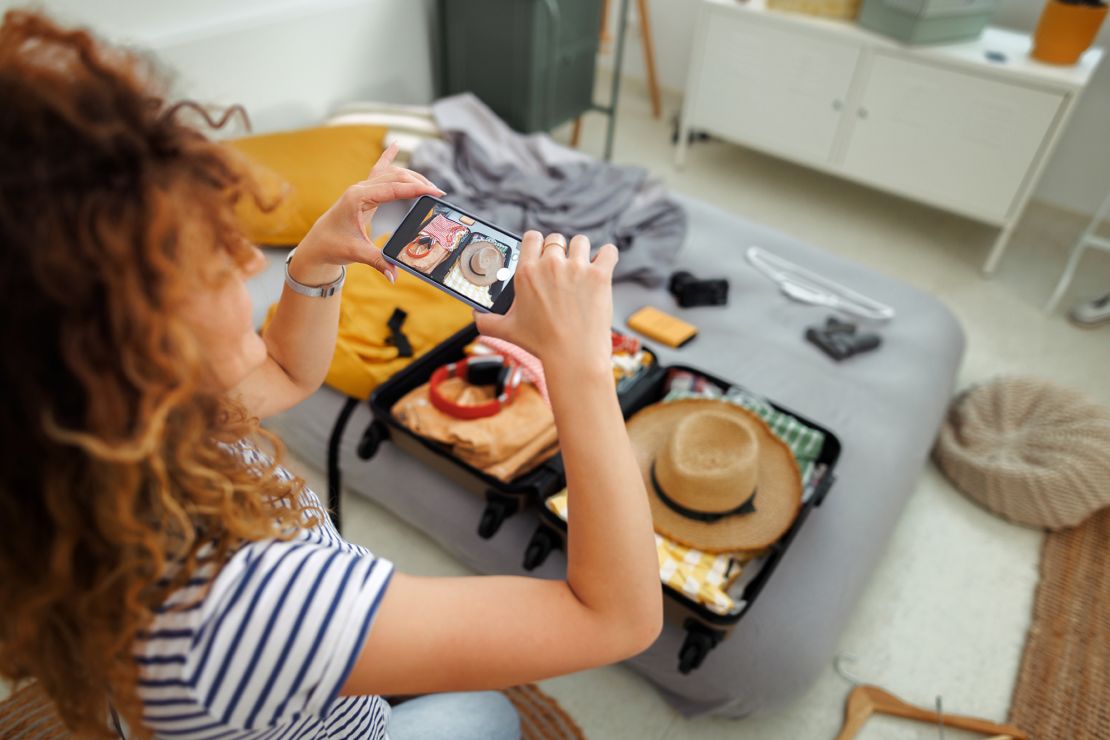
Book nonstop flights: If you’re really concerned about your checked luggage, prioritize nonstop flights or at least layovers with a generous amount of time, said Scott Keyes, the founder of flight deals and travel advice site Going.com.
“Bags are most likely to get lost in that transfer between planes at connection, especially if there’s a tight connection.” And he said that’s doubly so for international flights with tight connections.
Take pictures of your luggage and its contents: Jo Hoban, a travel agent in Spanish Fork, Utah, about 50 miles south of Salt Lake City, told CNN Travel that she advises her clients to “take a picture of their bags because the first things airline offices will ask you is what is the brand name of the bag, what is the color of the bag, the size of the bag and the contents of the bag.”
She also said people should lay out what they are planning to pack on the bed and take a picture of that, too. If the bag is lost, that helps create a content record.
Use baggage tracking: Many airline apps allow travelers to see the status of their bags in real time, showing when they are checked, loaded onto the plane and offloaded.
You can set up independent tracking yourself. For extra safety, you can set up your own bag-tracking. CNN Underscored, a product reviews and recommendations guide owned by CNN, has recommendations. And travelers using Apple AirTags will soon be able to allow third-party access to tracking information, giving airports and airlines another tool to hunt for bags in real time.
Properly ID your suitcases on the inside, too: The consumer advocate group Travelers United says put your info on the inside, too, in case your outside tag gets torn off.
The power of carry-ons: The airlines can’t lose baggage you never check in. Paula Twidale, senior vice president of travel for AAA, suggests packing as light as you can and using just carry-ons. You’ll save time leaving the airport and have more peace of mind.
Review your credit card coverage: Before you buy extra travel insurance, Keyes suggested you check your credit card policy for travel protection. You might get supplemental compensation (for what the airlines don’t cover) not only for lost bags, but also for reimbursements for things you may need to buy while you’re waiting for your luggage.
Luggage shipping: Shipping your luggage separately could make sense for two types of trips, Keyes said.
First case: You’re going to live somewhere for a month or longer and planning to bring a lot of stuff. Shipping not only allows you to bring more but at a cheaper price. And you get door-to-door service instead of carrying heavy bags around the airport.
Second case: You’ve got several short stopovers ahead of a final destination where you plan to stay a good bit longer. Use carry-ons for the short hops; ship your big luggage to the final stop.
If you’re shipping to a hotel or Airbnb, confirm with the staff or owner that they can store your belongings until you arrive, Keyes said.
Consider discount airlines: Keyes said full-service airlines are more likely to lose your bags than the discount airlines, which tend to have more nonstop flights that have a lower likelihood of losing a bag in transit.
He said he wouldn’t make a booking decision based solely on this, but it’s “an interesting side factor to consider.”
At the airport before you fly
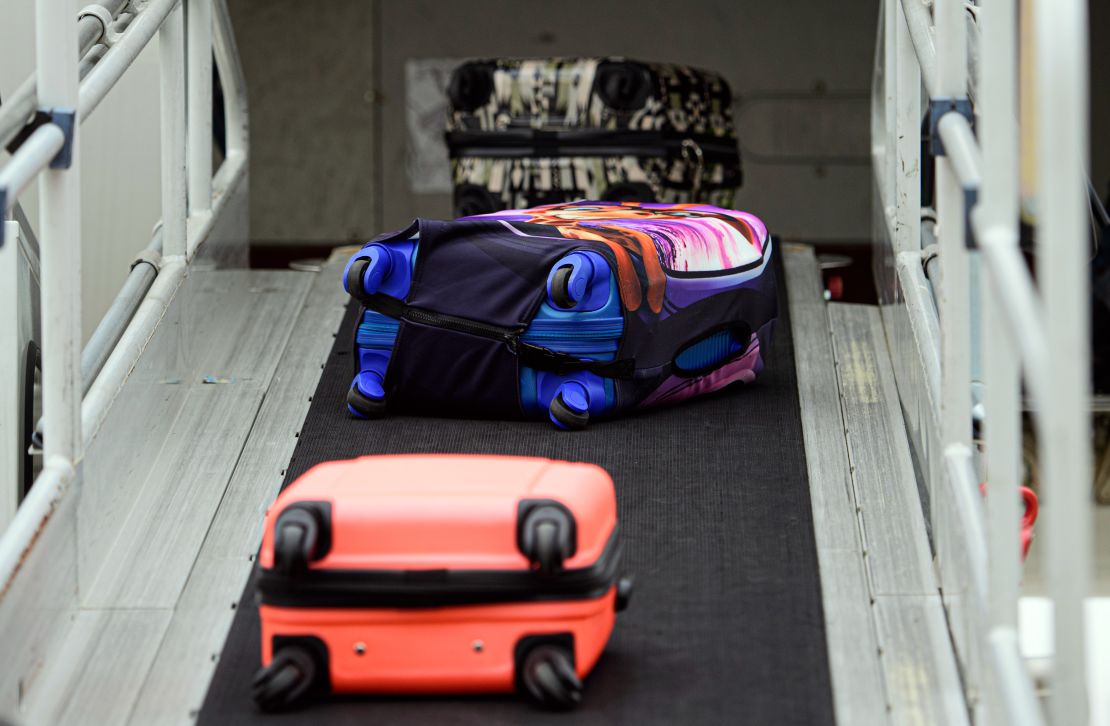
Check your bags in a timely manner: Advocacy group Travelers United says last-minute baggage check-ins can lead to a greater chance of trouble.
“Don’t push the system. The smallest delay can have serious consequences when your luggage is cruising down the conveyor belt and selected for security examination with little time to spare,” its website says.
Keep valuables in your carry-on: The TSA urges travelers to keep valuables such as jewelry with them in the cabin. “Do not put them in checked baggage,” the agency’s website says. And Keyes advises taking a picture of your packed luggage.
Check your baggage tag’s destination: Travelers United also advises you double-check your airline luggage tags and make sure they’re going to where you are going, especially if you’re doing curbside check-in.
And the North Carolina Consumers Council reminds travelers to keep their baggage claim ticket or sticker.
If your baggage is delayed
Scope out other spots at the airport: If your suitcases aren’t on the designated pick-up carousel, The Points Guy travel advice website suggests checking nearby carousels. If you don’t see them there, try the airline’s baggage office. This is also a good time to put those aforementioned tracking apps to work.
Report your issue and fill out forms at the airport: If your bags haven’t shown up, let the airline know.
“Many times, airline personnel will explain that the luggage has been located but will be delayed until the next flight,” Travelers United says. “If you have the time, wait. If not, fill out the appropriate lost luggage forms at the airport.”
Let the airline deliver your bags: Keyes said if an airline can locate your suitcases but it’s going to be hours before they arrive, make sure the reps have the address where you’ll be and use the airline’s delivery service.
Keep receipts: “If you buy anything to get you through the days without your luggage — from a new swimsuit to toothpaste — keep the receipts. You may need these to get reimbursed,” Going.com advises.
If your luggage is lost, damaged or stolen
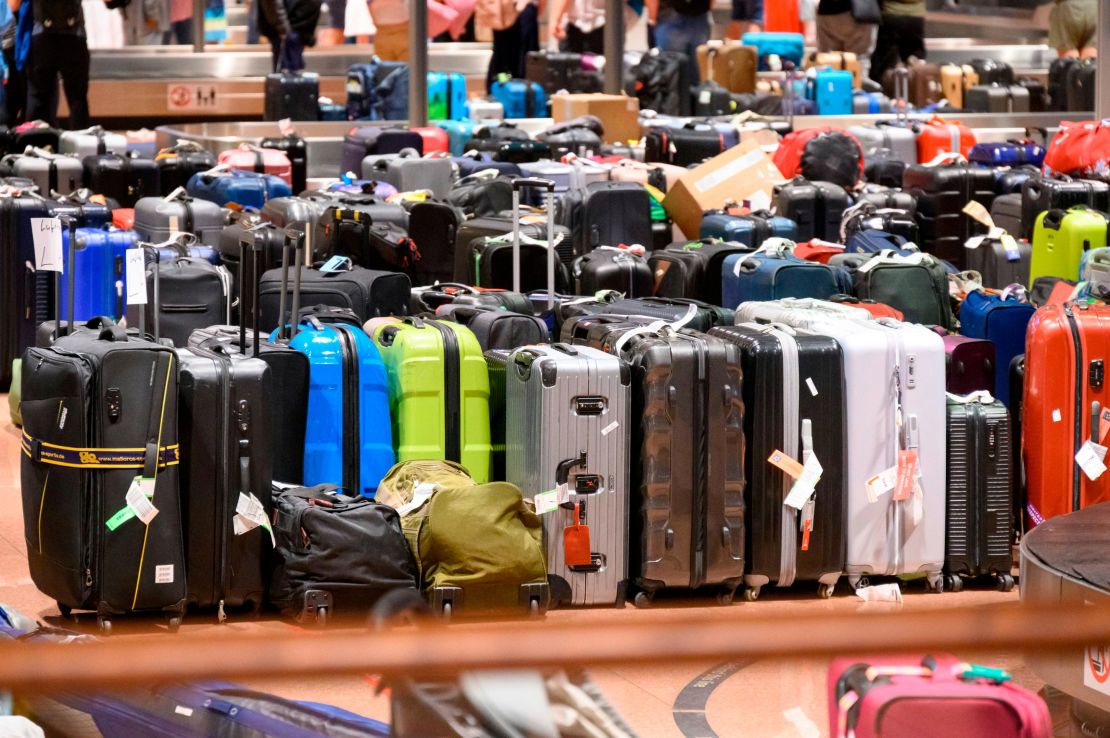
Check your airline’s claims and compensation policy: Each airline should have website information on what to do if your bag is lost. For example, this is Delta Air Lines’ page. This is American Airlines’ page. And this is Southwest Airlines’ page. And airlines based outside the United States have their own systems. This is what to do if flying British Airways or Lufthansa.
If the airline isn’t being helpful: “If the airline is dragging its feet on compensation … don’t be afraid to complain to the Department of Transportation, Keyes said regarding US airlines. You can file a complaint here.
For information on making claims for UK flights, click here. And check the UK’s Civil Aviation Authority’s site here. Get more information on Canadian flights here.
Liability limits: There’s fine print, exceptions and paperwork/documentation hurdles, but you should eventually get cash for your lost bags.
For US domestic flights, the maximum liability amount allowed by DOT regulation is $3,800. Airlines are free to pay more than the limit but are not required to do so. Find out more from the DOT here. For international flights, that figure is about $1,700.
Damaged bags: If you see your luggage is damaged while still at the airport, report it there. Airlines aren’t required to pay for damages to items caused by improper packing, according to the DOT, nor are they responsible for “certain categories of items (for example: fragile items, electronics, cash, perishable items …)” They are liable for damage to wheels, handles and straps.
Insurance: Baggage insurance can generally be divided into two broad categories: baggage delay and baggage loss. CNN Underscored, a product reviews and recommendations guide owned by CNN, has a guide covering baggage insurance.


